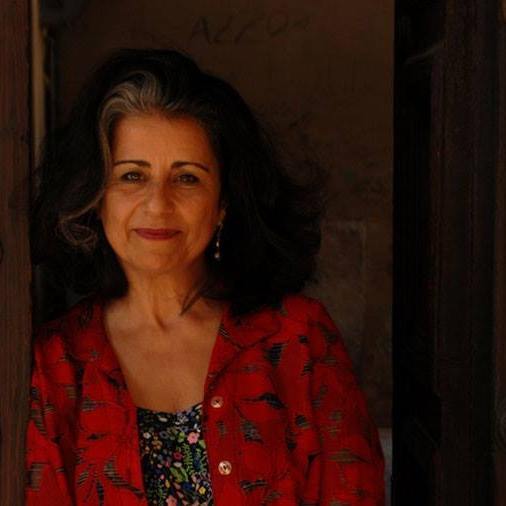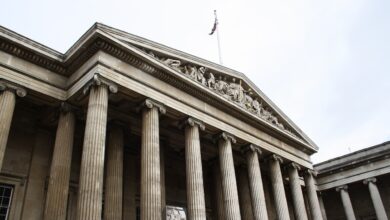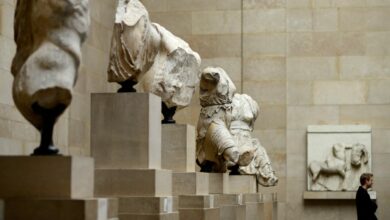
Renowned Egyptian novelist Ahdaf Soueif resigned from The British Museum board of trustees in protest of the museum’s “immovability” regarding their acceptance of sponsorship by oil giant BP and the repatriation of pillaged artifacts, according to a blog by Soueif in the London Review of Books (LRB).
BP has been the museum’s partner since 1996 and was accepted to continue as such until 2023, the UK’s Telegraph reported.
The woman behind “The Map of Love”, shortlisted for the Man Booker prize, clarified in her open letter that she did not leave the prestigious post over a single concern, and that her resignation was rather a “cumulative response.”
Soueif, who occupied the position for seven years, claimed that the museum does not prioritize younger or less-privileged people, despite that those individuals’ concerns are stated to be at the museum’s “core”, ahead of corporate concerns.
She emphasized that cultural organizations across the world should not dedicate themselves to professionalism alone, insisting that they also take ethics into consideration when making political and professional decisions.
Citing the museum’s ambiguous stances on critical issues including climate change, human rights, democracy, and the enduring legacies of imperialism, the latest resigned board member called for concise action from the British museum.
Soueif previously voiced criticism over BP’s sponsorship of the museum in 2016, raising concerns to her fellow board members and the director.
“It was an education for me how little it seems to trouble anyone even now, with environmental activists bringing ever bigger and more creative protests into the museum,” she said in the blog.
The Egyptian author stated her strong belief that the sums the museum gives to BP for public relations are considerable, and that the money given to the museum by BP is “not unattainable elsewhere.”
Soueif addressed the museum’s administration regarding the schoolchildren who regularly visit the admired museum while also facing the problem of climate change. “How do they respond to BP’s logo on the museum’s headline exhibitions?” she asked.
Soueif also highlighted the museum’s refusal last year to rehire one of its workers who was dismissed amid the downfall of Carillion.
The author further mentioned the museum’s disappointing reaction when French President Macron submitted a robust proposal asking for the museum to return all looted African artworks.
“It is in a unique position to lead a conversation about the relationship of South to North, about common ground and human legacies and the bonds of history,” she said of the museum in the LRB blog, adding that it has the capacity to help people imagine the world as a more merciful place.
She finalized her letter by illustrating values to which such a respected cultural institution should be held accountable. “Will it (the museum) be involved in making a world that is habitable, just, interconnected and open for the next generation; or will it continue to collaborate with those who are unmaking the world before our eyes?” she asked.
The British Museum is known for housing the biggest assemblage of Egyptian artifacts outside Egypt, including the 5,000-year-old Rosetta Stone alongside statues of Ramses II, among other ancient pieces.
Christie’s, the UK auction house, sold the head of Tutankhamen earlier this month for £4.7m, sparking outrage on the part of Egyptian officials.
Photo credit: Ahdaf Soueif’s Facebook page




